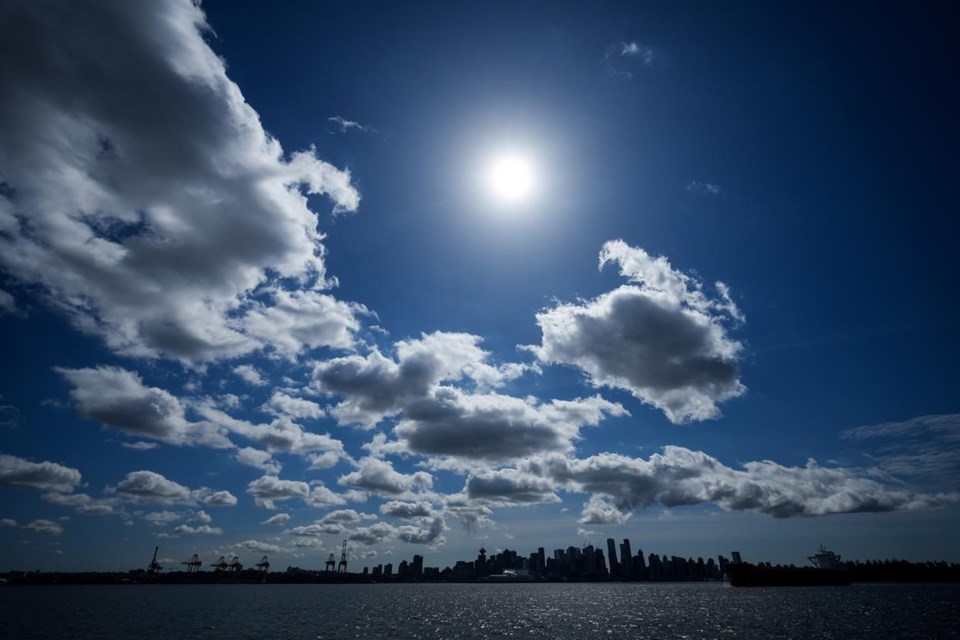SAANICH, B.C. — Cheers greeted the brief cloud breaks that gave more than 100 people gathered at an astrophysical observatory site near Victoria, B.C., a peek at Saturday's partial solar eclipse.
Fog and clouds were present for most of the morning at the mountain-top site, but there were moments when the skies parted and the partial eclipse was visible, said Calvin Schmidt, an employee of the non-profit Friends of the Dominion Astrophysical Observatory in Saanich.
Those moments of solar splendor were worth the waiting, he said, though there are reports the skies were almost totally clear in some parts of Victoria, giving those residents a sustained view of the partial eclipse.
"So, it was completely foggy," Schmidt said. "It's totally clouded over, however, occasionally the fog would be just thin enough that the optical depth would be just low enough that we could see it without using glasses for a moment or two and then it would disappear."
"Then we would be able to see it again," he said. "It was really exciting. People would cheer when it would suddenly appear."
Pairs of certified eclipse glasses to ensure safe viewing were provided at the event, and people were wearing them, but much of the morning was cloud covered, with short moments of clear skies, Schmidt said.
"I was very hesitant to say everybody could see it without eclipse glasses," he said. "I would definitely recommend against it because at some point it would be very bright, but that never ended up happening."
Southwestern B.C. was Canada's best place to view the eclipse.
It was known as a ring-of-fire eclipse, where the moon passes in front of the sun but doesn’t completely cover it, leaving a fiery rim around the dark moon.
Environment Canada had forecast clouds and showers for much of southwest B.C. during the morning eclipse, where the moon was expected to block out 70 to 80 per cent of the sun, while the rest of the province was set to see 50 to 70 per cent coverage.
North Americans don't have long to wait for their next shot at seeing the phenomenon, said Laura Flinn, a physics instructor at the Vancouver area Kwantlen Polytechnic University.
A complete solar eclipse will happen on April 8, 2024, and will be viewable over parts of Ontario, Quebec, New Brunswick, Prince Edward Island and Newfoundland and Labrador.
Flinn reminded people not to look directly at the sun during the eclipse.
"All of us sort of like just glance at the sun occasionally, but the danger with the eclipse is you get mesmerized watching the moon and you stare at it too long, and then you can damage your eyes," he said.
Schmidt said the weather conditions were far from perfect for the eclipse watchers, but everybody left the observatory satisfied.
"It was definitely worth it," he said. "We got to see enough of it and that was a big deal," he said. "I suppose it would have been more perfect if the clouds were completely gone away so that we could get a continuous view."
This report by The Canadian Press was first published Oct. 14, 2023.
Dirk Meissner, The Canadian Press



